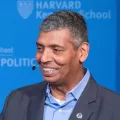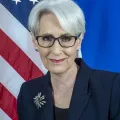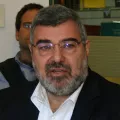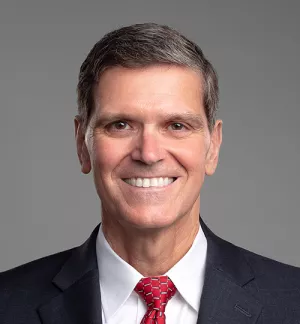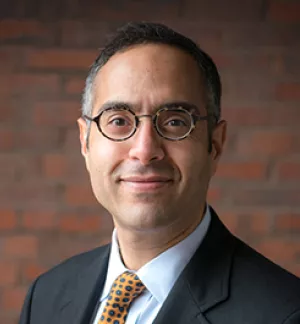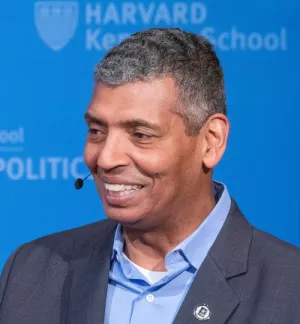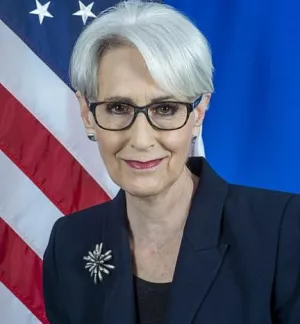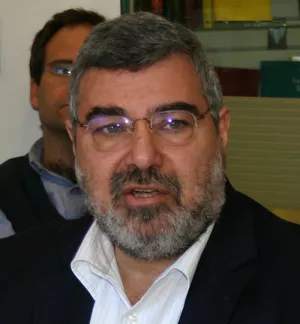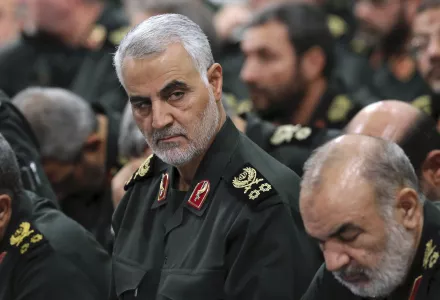
Belfer Center experts weigh in on potential impacts of the U.S. killing of Gen. Qassem Soleimani. To help shed light on the factors that make this air strike so potentially consequential, the Belfer Center has curated select past articles from our archive. View those here.
Gen. (ret.) Vincent K. Brooks, former Commander of United States Forces Korea; Non-resident Senior Fellow, Belfer Center for Science and International Affairs:
“This is significant in multiple ways.
1. The attack was effective. Qassim Soleimani is dead. He has escaped death many times, until now.
2. Soleimani is the spirit of the IRGC and the numerous proxies spawned by it. His ‘martyrdom’ will stimulate a soul-deep desire among his many followers to avenge his death. Neither Iran nor Iraq, governmentally, will be in control of these actions.
3. Attacking Soleimani reflects a new policy direction that is aiming directly at the malign activities of Iran — largely unchecked for decades. This is different.
4. The other ‘big fish’ killed in the attack nicknamed, ‘Abu Mahdi al Muhandis’ or ‘The Engineer’ was a very effective leader. His death will leave less capable, less strategic, and less disciplined leaders to emerge now in the Iraqi vacuum. Iraq will remain politically unstable well into this new decade.
To be sure, the game just changed. Expect chaos ahead.”
Matthew Bunn, Co-Principal Investigator, Project on Managing the Atom, Belfer Center for Science and International Affairs:
“Major General Qassim Soleimani was a deadly enemy of the United States, but the risks of President Trump’s decision to kill such a key figure in Iran’s government are huge. Iran and the groups it supports throughout the Middle East will almost certainly respond, and for now, Iranian advocates of negotiation and compromise will be sidelined, leaving little hope for a negotiated deal in the near term. Iran may well expand its nuclear capabilities, edging closer to a nuclear bomb. Iraq’s government will be under severe pressure to end or cut back the U.S. military presence there and may pull even closer to Iran, despite recent anti-Iranian protests. To avoid escalation to a catastrophic regional war, the Trump administration will need a careful strategy to combine de-escalation, diplomacy, and deterrence — and careful strategy in foreign crises is something on which the Trump team has a record unblemished by success.”
Paula J. Dobriansky, Non-resident Senior Fellow, Future of Diplomacy Project, Belfer Center for Science and International Affairs:
“The Trump Administration’s targeted drone strike against US-designated terrorist General Soleimani, Commander of Iran’s Quds Force, is justified. Soleimani has planned and conducted numerous acts of terrorism resulting in the deaths and maiming of thousands of Americans and spread of violence and instability throughout the Middle East. Significantly, the most immediate cause for the US action against Soleimani was that he was responsible for the recent attack on the US Embassy and missile strikes against US bases in Iraq and Syria — actions recognized as acts of war under international law — and credible intelligence emerged that he was planning more attacks. By not taking action, we would send a signal not only to Iran but other State-sponsored terrorists that they have a license to continue their unlawful and lethal attacks against American troops and diplomatic facilities. Thus, contrary to what is being claimed by the critics, this action was de-escalatory. And as Secretary of State Mike Pompeo has stated, the Administration will pursue a measured course of action, mitigating the prospects of escalation.”
Morgan L. Kaplan, Executive Editor, Quarterly Journal: International Security:
“The U.S. killing of Qassim Suleimani in Baghdad is a major, dangerous, and unexpected escalation in competition between Washington and Tehran. Suleimani had substantial blood on his hands from his activities across the region, including the deaths of hundreds of Americans. Yet, Suleimani was perceived by many to be untouchable due to his prominence in Iran and beyond. No one can be certain what the short- or long-term consequences of Suleimani’s assassination will be, except that Iran will respond on its own terms and timeline. The U.S. should be prepared for a wide range of first- and second-order effects.”
Rami Khouri, Senior Fellow, Middle East Initiative, Belfer Center for Science and International Affairs:
“The United States’ assassination of Qasem Solaimani and several colleagues in Iraq is not going to push anyone to war in the Middle East, because they are already engaged in a war of sorts. But it is significant for raising one more level the nature of the targets that have been attacked by the USA, Iran, Israel, Saudi Arabia, the UAE and others in the ongoing, slow-motion, low-intensity conflict that has been underway for some years. Iran and USA leaders both mainly play to their domestic audiences, as do all leaders, while trying to strengthen regional alliances, which Iran has done far better than the USA to date. This conflict will persist at this or even higher levels, until all sides learn that diplomacy can achieve their domestic and regional goals far more efficiently and cost effectively than their militarism.”
Martin Malin, Executive Director, Project on Managing the Atom, Belfer Center for Science and International Affairs:
“The killing of Qassem Suleimani has tremendous potential to escalate tensions and conflict in the Middle East. The immediate response from Iran and its allies is going to be widespread and violent — potentially involving Iranian proxies from Lebanon to Iraq. But the bigger risks come in the medium to long term. General Suleimani was a powerful and sometimes controlling voice in the negotiation of tacit agreements about the red lines Iranian allies held — vis-à-vis other local adversaries and Israel. What will happen to these understandings over the long term, whether they will hold as new Iranian leadership emerges is anyone’s guess. But we may see a much less stable, much more conflict prone Middle East in 2020.”
Tarek Masoud, Sultan of Oman Professor of International Relations, Harvard Kennedy School:
“Qassim Soleimani was responsible for the deaths of thousands of people across the Middle East. No one who cares about peace in the region and coexistence between the adherents of its various sects and creeds could possibly mourn his death. That said, it is impossible to know whether his removal from the scene will make us safer, or simply impel the Iranians to devise some spectacular retaliation that plunges the region further into bloodshed. What is clear is that America’s four decade long Cold War with Iran has entered a new and perilous phase.”
Gary Samore, Senior Fellow, Korea Project, Belfer Center for Science and International Affairs:
“The most important immediate impact of Soleimani’s assassination will be in Iraq. Iran will use the assassination to divert attention away from popular protests against Iranian influence in Iraq and increase pressure on the Iraqi government to expel U.S. forces from the country. In this effort, Iran will probably be successful, thus consolidating its hold over Iraq, which began after the U.S. invasion in 2003.”
Wendy R. Sherman, Chief U.S. Negotiator for Iran Nuclear Agreement; Senior Fellow, Belfer Center for Science and International Affairs; Director, Center for Public Leadership:
“There will be terrible, terrible reprisals. They will likely happen in the Middle East, but they could happen anywhere in the world. And we have people all over the world that could become targets.” (MSNBC, 1/2/2020)
Elizabeth Sherwood-Randall, Senior Fellow, Belfer Center for Science and International Affairs:
“IRGC commander Qassim Soleimani has fomented violence, terror, and instability that undermined American interests across the greater Middle East. He was an obstacle to progress and no friend of the United States. However, the use of America’s military power must be embedded in a broader strategy that advances the security of our people, our allies and our partners. Instead, for the past three years our policies in the region have been incoherent and unreliable. This has resulted in huge uncertainty over the viability of U.S. commitments and new threats to our interests on multiple fronts, including the consequences of abandoning the JCPOA agreement that verifiably deprived Iran of a nuclear deterrent. We await an explanation of the gameplan — and Congress bears responsibility for holding the Administration accountable.”
William H. Tobey, Senior Fellow, Belfer Center for Science and International Affairs:
“Soleimani’s death carries several implications. First, Iran’s paramilitary and terrorist capabilities are damaged; Soleimani was shrewd, ruthless, and experienced, hence an inspiration for militants. Second, there is now no possibility (if ever there was) that Tehran will negotiate with the Trump Administration before 2021; which will end first, the maximum pressure campaign or Iran’s ability to resist it? Third, countries feeling aggrieved or attacked often become more risk tolerant; Tehran escalated the conflict from economic sanctions to paramilitary strikes. President Trump is betting that killing Soleimani will foreclose the military path of resistance, but Iran’s Supreme Leader will have his say too.”
Gen. (ret.) Joseph L. Votel, former Commander of the U.S. Central Command; Non-resident Senior Fellow, Belfer Center for Science and International Affairs:
“1. QS was a bad actor with significant American blood on his hands … as our former Special Envoy for Combatting ISIS, Brett McGurk, observed — there is a deserving measure of justice here.
2. Additionally, if QS was indeed plotting against our people or interests (and I trust our IC professionals) — then we have an obligation to protect ourselves.
3. The region, if possible, has just become more complicated. There are unknown consequences for force protection, partnerships, regional security and both our strategy against Iran (the Maximum Pressure Campaign) and the National Defense Strategy which prioritizes our competitive advantage against Great Powers.”
Bunn, Matthew, Morgan L. Kaplan, Elizabeth D. Sherwood-Randall, Joseph L. Votel, Tarek Masoud, Vincent K. Brooks, Gary Samore, Martin B. Malin, William H. Tobey, Wendy R. Sherman, Paula J. Dobriansky and Rami Khouri. “Impacts of the U.S. Killing of Qassem Soleimani.” Belfer Center for Science and International Affairs, Harvard Kennedy School, January 3, 2020






